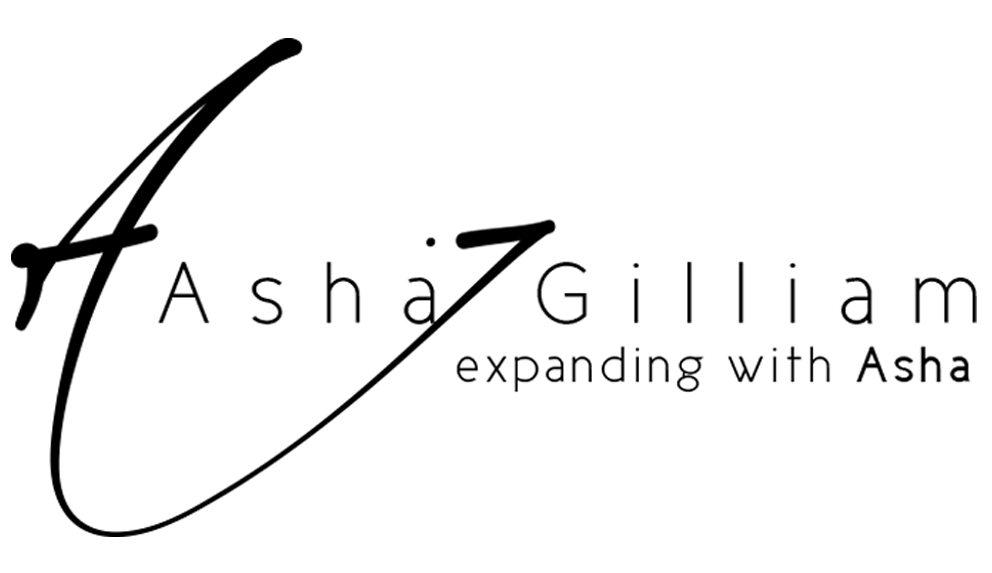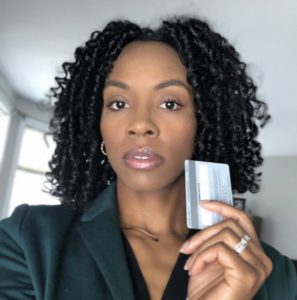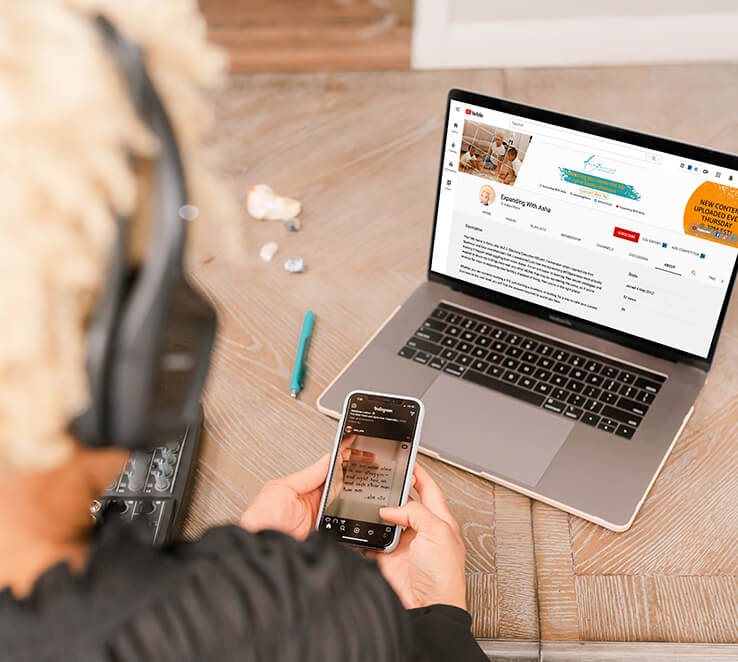MOMMY TALKS PODCAST Episode 17
- MOMMY TALKS PODCAST
Losing a loved one is not only an emotional loss but can also be a financial loss. Especially if that person happens to be one of the family’s main providers. A loss like that can result in much more of a burden. No one plans to leave their family in debt. But most people don’t plan for their death either, as if they are in denial that that day will ever happen for them and their loved ones.
Not to sound morbid, but we all have an expiration date. No one knows if that expiration date is days, months, or years from their date of birth. Some people live longer, while others depart from their loved ones much earlier. The sad part of this is that most of us live our lives as if this won’t happen to us. This hit hard for my family.
I lost my nephew back in 2016 when he was only eight months old. The last time I saw him alive was just a few weeks prior at my baby’s first birthday. I realized that only one thing is guaranteed for each of us: we’re all headed to the same destination.

Most Need Something Traumatic To Happen Before Making A Change

Although this was extremely devastating for my family, it wasn’t until two years later, when I faced my very own near death experience that I realized that I needed to start preparing my family for when that tragic day actually comes.
I became more determined after my near death experience. I decided to figure things out so that instead of leaving my family in debt I could prepare them to be able to manage once I am no longer here to guide them. I prefer to leave them with generational wealth instead of continuing the cycle of passing on debt. And educate them so that they will be able to pass that education to the next generations to do the same.

There Are Different Ways To Generate Wealth

I’ve learned that there are a number of ways one can achieve financial security. Some people choose to do this by investing their money in certificate of deposits, in government bonds, or even building up a stock investment portfolio.
Now while I’m not saying one of these is better than the other, what I am saying is that the problem with such methods is that it requires you to sacrifice some degree of control over your wealth. The amount you invest in these instruments is tied up and you will not be able to leverage it for other purposes.
For instance, if you were needing to buy a new car, you must sell off these investments first to do so. That means you will need to choose between your current necessity versus your family’s future financial security.
What if I told you that there is a better way of creating wealth?
One in which you will still be able to afford the niceties of life while your wealth continues growing uninterruptedly behind the scenes. This is how families like the Rockefellers have done it from generation to generation.

The Infinite Banking Concept

There is no secret to success, but there is a system that works. The same is true for financial freedom, which is to set yourself up with a system that gives you control, flexibility, and liquidity. The infinite banking concept gives you all of these plus it gives you the added advantage of your investments compounding in value. Let me explain how this works.
There are three different types of people:
- i) The Debtors: These are people who borrow to pay for large expenses. At the end of the month, they give away a sizeable portion of their paycheck in debt and interest repayments. In a way, they have already obligated their future income to someone else.
- ii) The Savers: The traditional way that our parents and grandparents used to do it was by saving money first and then making large purchases. When a large expense used to come, they would have to drain their savings tank, so to speak. In this comparison, they are no better than the debtors because after paying for large expenses they would usually find themselves back to zero as well.
- iii) Wealth Creators: The third type of people are the smart ones. Every month, they save their money as much as possible. When they must make large expenses, they collateralize their wealth. This is what the wealthiest families in America have done for generations. You might have already done it too but have not realized it yet.
For instance, you might have borrowed from your 401K plan or against your home in a home equity line of credit.

Collateralizing Your Asset And Borrowing Against It

All you are doing is collateralizing your asset and taking a loan against it. The idea is simple; you build up your equity in one of your infinite banking concept accounts/assets and borrow against that when you need it. But there are a few differences between these methods. When you are taking out a loan from either of the other options mentioned, you are losing interest that you would have earned on the money that you are borrowing from the account.
You are also being taxed on the monies that you are borrowing from either of those accounts. You have to explain the reason for the loan in hopes that it will be approved from your money that you have invested. And if you were to borrow money out of your 401K before the age of 59 ½, you face a 10% tax penalty + income tax.
With an infinite banking system in place, you aren’t asked to provide an explanation when requesting a loan, you simply have to have the cash value available and are able to take out a loan of up to at least 90% of that amount. Under current tax laws the money that you may take out of the account may not be subject to being taxed.
The best part about establishing this type of account for you and your family is that even if you were to take out a loan, your money will continue to earn uninterrupted compound interest even after you have borrowed against it.
What does that mean?
No matter the amount you take out, your money still earns the same interest rate as to what you were earning on your asset prior to taking out the loan. Let me give you an example of how this works:
Let’s say you can borrow $50,000 at a 6% interest rate, which ultimately depends on your credit score for 25 years. At a monthly payment amount of about $322.15, which doesn’t seem to be much initially, but over the course of that loan, you would stand to repay a total $96,646, of which $46,645 is in interest payments alone until your debt is paid off.
On the other hand, if you take a loan of $50,000 against your life insurance policy instead, you would still stand to pay the $46,645 in interest over the 25 years, but because you are still earning interest as if the $50,000 has not been taken out as a loan, your account would have earned a whopping $164,593 from that same loan over that 25 year timespan. The net gain to you and your family in this situation is $117,948.
This is because the effect of compound interest is more effective than the loan amortization effect.
By establishing an infinite banking system for your family, you essentially leverage your savings by not only earning the compounded interest uninterruptedly, but also you are able to use the same money to provide a better life for your family today and even when you are no longer here with them physically.

Life Insurance – How Your Family Can Leverage the Concept of Infinite Banking.

There are three major types of life insurance plans:
- i) Term Life Insurance: These policies last for only a certain period. If you don’t die within that period, the policy expires and any money that you have paid into the policy is an earning to the insurance company.
- ii) Universal Life Insurance: Lasts for your lifetime. The death benefit is guaranteed, and in general, your premiums stay the same. However, there is typically no cash value associated with the policy.
- iii) Whole Life Insurance: This plan, like a universal life insurance policy, also lasts until your death. It’s the closest thing to a ‘set it and forget it’ life insurance. You determine your premiums based on your family’s goals, your policy earns a cash value, you could potentially be paid a dividend payment from the insurance company and the death benefit amount increases overtime due to inflation.
But if your goal is to set up an infinite banking system where you can collateralize your asset and take a loan against it at any time, you will have to go for a dividend paying whole life insurance policy since it has an option to add on a rider, which is how it then possesses a cash value buildup mechanism.
There is no limit to the riders that you can add to the policy to make it better fit you and your family’s needs. One that includes covering your children under a term policy until the age of 24. As long as you convert their term policy into this same type of whole life dividend paying policy before they turn the age of 24 because they are already considered covered, the insurance company wouldn’t be able to deny them a policy even if things were to change with their health unless the policy were to lapse.
Every time you pay a premium for the whole life insurance policy, around 70% of that goes to building up your cash value. You end up having an infinite personal bank at your disposal in which you can borrow up to 80%-90% of the amount equivalent to your cash value without having to pay for a credit check or even be asked a reason as to why you’d like to take out the money. How invasive is that?
An infinite bank is what this truly is! All this while your principal investment is compounding as well in terms of the death benefit your family will be receiving.

Can Any Insurance Company Set Up This Type Of Policy?

No, there are two different types of insurance companies: stock life insurance, which is a stock owned life insurance company that shares its profits with shareholders. Other requirements must also be met if the company's shares are publicly traded.
The second type is mutual life insurance, which is an insurance company owned entirely by its policyholders. Any profits earned by a mutual insurance company are distributed back to the policyholders in the form of dividends. You must note that dividends are only paid by mutual life insurance companies. Their policies are also known as participating whole life insurance because the policy owners participate in the profits generated by the company, by receiving dividends.
In Nelson Nash’s book, “Becoming Your Own Banker,” he explains that the word, dividend was originally used by the insurance industry to describe this dispersal and it stuck with us, but the correct classification is actually a return of premium (or a return of capital).
How can you tell the difference between these two if it is not clearly stated?
A good indicator that an insurance company is a stock life insurance company is if it is owned by multiple companies, and/or a publicly traded company.
The infinite banking concept in insurance works better for non-direct recognition dividend paying life insurance companies. This is how you are able to take out a loan from a non-direct recognition while your money continues to grow at the same rate!
A direct recognition policy, on the other hand, works the complete opposite as well as penalizes you for taking out the loan.

Factors To Look Out For When Buying A Policy

Here are a few other factors that you will want to look out for when buying a policy:
- Fixed Rate versus Variable Rate: Always check if your whole life insurance policy lets you borrow money on a variable rate or a fixed rate. Variable rates are a must, since we are living in a time where interest rates have been at their lowest, so that would mean lower interest rates when you borrow from your cash policy—lower than your dividend credit.
- Flexibility of Plan: It is always favorable if your plan is flexible enough to allow you to have additional rider options in your plan later. These options can help you build up your cash value faster. The greater the cash value, the more you can take out as a loan.
- Dividend Paying History: Performance of the mutual life insurance company matters a lot. How consistent has the company been over the past few decades in giving out a dividend? Dividends are a key component to your infinite banking master plan.
You must be very careful of insurance agents who might sell you the wrong type of insurance policies (fixed rate on loans) which might not fit the infinite banking concept or your financial needs, just so they can make a few extra dollars as commission. Don't worry I got you, I can connect you with an agent who has already been certified to assist you and your family.

Whole Life Mutual Insurance Companies – The Holy Grail

At the end of the day, you get a lot of benefits in buying a whole life insurance policy from a mutual life insurance company:
- The obvious death benefit to your beneficiaries after you die.
- Being a tax advantaged account means you can grow your wealth without Uncle Sam taking a penny of it as tax. However, there is a Modified Endowment Contract (MEC) restriction on your account which allows the government to tax your gains when withdrawing your cash value if they exceed federal tax limits.
- Asset protection against litigation or creditors depending on your state.
- Principal protection as life insurance companies guarantee you around a 4% growth rate.
- Dividend payout—gross 5% on average.
Disclaimer — Dividends are not guaranteed but there are mutual insurance companies who have been paying dividends for over 100 years.
- Ability to draw on your cash value at variable interest rates. In times of lower interest rates, the loan interest could be around 4% (lower than dividend credit). So, you essentially have got your own private unlimited bank.
- The ability for your wealth to grow and compound uninterruptedly.

Main Benefits Of A Whole Life Insurance











